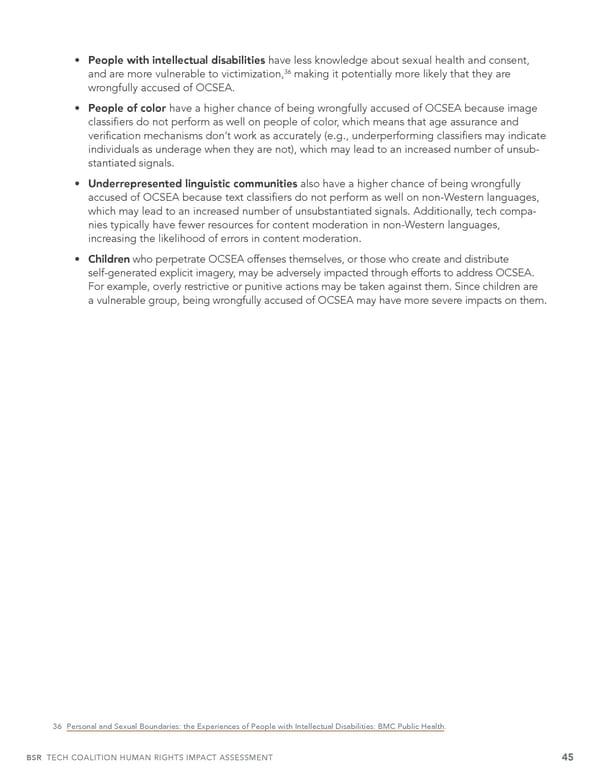• People with intellectual disabilities have less knowledge about sexual health and consent, 36 making it potentially more likely that they are and are more vulnerable to victimization, wrongfully accused of OCSEA. • People of color have a higher chance of being wrongfully accused of OCSEA because image classi昀椀ers do not perform as well on people of color, which means that age assurance and veri昀椀cation mechanisms don’t work as accurately (e.g., underperforming classi昀椀ers may indicate individuals as underage when they are not), which may lead to an increased number of unsub- stantiated signals. • Underrepresented linguistic communities also have a higher chance of being wrongfully accused of OCSEA because text classi昀椀ers do not perform as well on non-Western languages, which may lead to an increased number of unsubstantiated signals. Additionally, tech compa- nies typically have fewer resources for content moderation in non-Western languages, increasing the likelihood of errors in content moderation. • Children who perpetrate OCSEA offenses themselves, or those who create and distribute self-generated explicit imagery, may be adversely impacted through efforts to address OCSEA. For example, overly restrictive or punitive actions may be taken against them. Since children are a vulnerable group, being wrongfully accused of OCSEA may have more severe impacts on them. 36 Personal and Sexual Boundaries: the Experiences of People with Intellectual Disabilities: BMC Public Health. BSR TECH COALITION HUMAN RIGHTS IMPACT ASSESSMENT 45
 Tech Coalition Human Rights Impact Assessment of the Lantern Program Page 44 Page 46
Tech Coalition Human Rights Impact Assessment of the Lantern Program Page 44 Page 46